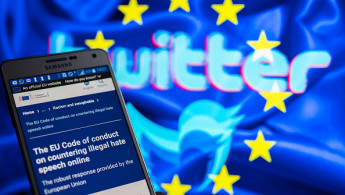EU warns Musk of 'sanctions' after Twitter suspensions
The EU on Friday warned Elon Musk that Twitter could be subject to sanctions under a future media law after the "worrying" suspension of several journalists from the messaging platform.
Twitter suspended the accounts of several journalists who cover the social media platform on Thursday, the latest battle over what can and cannot be said on the site since billionaire Elon Musk took control of it.
Accounts of reporters with The New York Times, Washington Post, CNN, Voice of America and other publications, went dark Thursday.
The company hasn’t explained to the journalists why it took down the accounts and made their profiles and past tweets disappear. But Musk took to Twitter on Thursday night to accuse journalists of sharing private information about his whereabouts that he described as “basically assassination coordinates.” He provided no evidence for that claim.
The sudden suspension of news reporters followed Musk’s decision Wednesday to permanently ban an account that automatically tracked the flights of his private jet using publicly available data. That also led Twitter to change its rules for all users to prohibit the sharing of another person’s current location without their consent.
Several of the reporters suspended Thursday night had been writing about the new policy and Musk's rationale for imposing it, which involved his allegations about a stalking incident he said affected his family on Tuesday night in Los Angeles.
"News about arbitrary suspension of journalists on Twitter is worrying. EU's Digital Services Act requires respect of media freedom and fundamental rights. This is reinforced under our Media Freedom Act," EU commissioner Vera Jourova posted on Twitter.
"Elon Musk should be aware of that. There are red lines. And sanctions, soon."
Jourova's warning came backed by two pieces of EU legislation, one of them not yet adopted.
The Digital Services Act (DSA) requires companies serving European web users to meet strict standards against manipulative algorithms, disinformation and other online harm.
It came into force on November 16 but is not fully applicable across the EU's 27 countries until next March for the biggest online platforms -- likely to include Twitter -- and a year later for others.
Companies found in violation of the DSA could be fined sums equal to up to six percent of the global revenue -- or even banned from the huge EU market.
The EU's Media Freedom Act (MFA) has been proposed by the European Commission but not yet made into law.
It seeks to protect media pluralism and independence in an increasingly digital space -- ensuring media outlets are not unduly pressured and are able to remain editorially independent.
It foresees an EU body being set up which would monitor self-regulation by very large platforms and discuss issues such as "foreign information manipulation and interference".





 Follow the Middle East's top stories in English at The New Arab on Google News
Follow the Middle East's top stories in English at The New Arab on Google News


